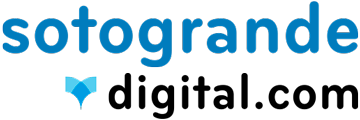Herramientas de mediación para mejorar la inmunidad cognitiva

¿No tenéis, con cada vez mayor frecuencia, una sensación de pérdida de libertad convivencial?
A menudo escucho, tanto en gabinete como fuera, argumentos sobre lo manipulados que estamos por los políticos y los medios de comunicación dentro de contextualizaciones nulas o repletas de frustración y destructividad. Seguro que la mayoría de quienes me leéis, estaréis de acuerdo en que invertir energía y tiempo en imaginar escenarios devastadores desde un mar de impotencia, dándole vueltas y vueltas al problema sin trascenderlo, comprenderlo y relativizarlo, es algo muy poco saludable y perjudicial para nuestro sistema inmunitario.
Los medios de comunicación nos ofrecen variadísima cantidad de información sobre los problemas y
sesgada sobre las soluciones. Ello, unido a los estresantes ritmos de vida, a la falta de ratos tranquilos para reflexionar, es como un veneno para el pensamiento crítico y la creatividad. Las temporadas medio largas de este estrés y veneno informativo ahogan las relaciones personales a muchos niveles. Parejas, familias con hijos, empresas, equipos, amistades, enfermas de conflictos. Aquello que se alimenta de mantener la situación destructiva puede ser más o menos consciente del mal, pero nunca la vida gana por esa vía si no sirve para trascender el problema.
Aquí es dónde podemos hablar de herramientas de mediación como algo saludable y educativo para tener criterio sobre las cosas que nos rodean. Desde las noticias que nos cuentan por la tele, hasta una situación en el trabajo, con la familia o en clase, la mejor manera de crecer a través de ello, es teniendo un criterio propio, unas ideas claras sobre cómo nos afecta esa situación y a dónde nos puede conducir tomar frente a ella una u otra postura. Los profesionales de la mediación aplican herramientas para ayudar a sus clientes a hacer esto mismo frente a una situación particular de conflicto.
Las herramientas de mediación sirven para tomar perspectiva y esto es saludable. Hemos de proteger nuestro sistema inmunitario también frente a estímulos e ideas que generen estrés, preocupación y fomenten la confrontación basada en la desconfianza y el miedo. Ahí es dónde cabe hablar de inmunidad cognitiva.
Cada vez más personas son conscientes de la cantidad de ideas falsas que circulan y de lo perjudiciales que son para la salud. Consumirlas puede generar crispación o estrés, o bien aislamiento mediático ¿os viene, por ejemplo, a la cabeza alguien que os haya dicho que, últimamente, no ve las noticias o las ve menos? La solución, en todos los casos, pasa por lograr un saludable equilibrio entre la percepción de las circunstancias y la capacidad de generar ideas propias y creativas al respecto. Este equilibrio cognitivo es lo que favorecen las herramientas de mediación y por lo que os hablo de ellas. Son herramientas que propician el pensamiento crítico e informado.
La clave está en ordenar la información que nos llega, priorizarla de acuerdo con nuestros valores y objetivos personales y, en tercer lugar, comunicar opiniones de acuerdo a nuestros deseos e intereses y no a miedos. Esto es lo que favorecen las herramientas de mediación. Podemos aplicarlas a cualquier situación, ante relaciones personales, profesionales, novedosas, noticias de los medios de comunicación, etc. Son herramientas para el ejercicio saludable de la autonomía personal y la toma de decisiones responsables.
Catalina Bernaldo de Quirós.
Mediadora y Pedagoga
Directora del Gabinete de Mediación “Co-Mediacion”
Más info en: www.co-mediacion.com
Mediation tools to enhance cognitive immunity
Do you not feel, more and more frequently, a sense of loss of freedom of coexistence? I often hear, both in cabinet and outside, arguments about how manipulated we are by politicians and the media within contextualisations that are either non-existent or full of frustration and destructiveness. I am sure that most of you who read me will agree that investing energy and time in imagining devastating scenarios from a sea of impotence, going round and round the problem without transcending it, understanding it and relativising it, is very unhealthy and damaging to our immune system.
The media offer us a huge variety of information about the problems and biased information about the solutions. This, combined with the stressful pace of life and the lack of quiet time for reflection, is like poison for critical thinking and creativity. Half-long periods of this stress and informational poison stifle personal relationships on many levels. Couples, families with children, companies, teams, friendships, sick with conflict. That which feeds on maintaining the destructive situation may be more or less aware of the evil, but life never wins that way if it does not serve to transcend the problem.
This is where we can talk about mediation tools as something healthy and educational to have judgement about the things around us. From the news we hear on TV, to a situation at work, with the family or in class, the best way to grow through it is to have our own criteria, clear ideas about how the situation affects us and where it can lead us to take one position or another. Mediation practitioners apply tools to help their clients to do the same in a particular conflict situation.
Mediation tools serve to gain perspective and this is healthy. We have to protect our immune system also against stimuli and ideas that generate stress, worry and encourage confrontation based on mistrust and fear. This is where cognitive immunity comes in.
More and more people are aware of how many misconceptions are circulating and how harmful they are to health. Consuming them can lead to tension or stress, or to media isolation. Can you think of anyone who has told you that they don’t watch the news or watch less of it lately? The solution, in all cases, is to achieve a healthy balance between the perception of the circumstances and the capacity to generate one’s own creative ideas about them. This cognitive balance is what mediation tools favour and why I am talking about them. They are tools that encourage critical and informed thinking.
The key is to order the information that comes to us, to prioritise it according to our personal values and objectives and, thirdly, to communicate opinions according to our desires and interests and not to fears. This is what mediation tools promote. We can apply them to any situation, to personal relationships, professional relationships, novelties, news from the media, etc. They are tools for the healthy exercise of personal autonomy and responsible decision-making.


